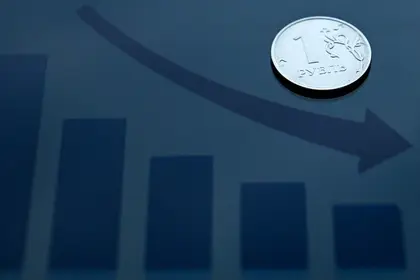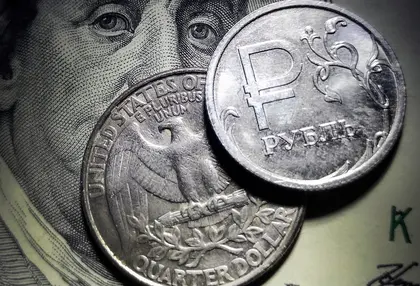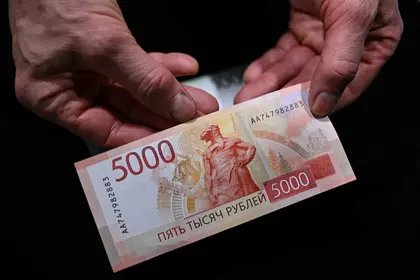The Russian ruble, which has shown increased volatility over the past year - having lost more than half of its value since January - returned to a “normal” value of around 92 to the US Dollar, has again begun to show instability.
On Tuesday, the ruble devalued to over 96 to the Dollar, whereas private banks, including Tinkoff's, were offering rubles at slightly over 100 to the Dollar.
JOIN US ON TELEGRAM
Follow our coverage of the war on the @Kyivpost_official.
In a survey conducted by Aktion Management of Russia, some 44% of businesses said that the decline of the ruble has caused “serious damage to their business.”
The independent Russian online newspaper “The Bell” indicated that the Russian Central Bank's decision earlier this month, to hike interest rates by 350 base points, to stave-off the rapid devaluation of the ruble, could increase the risk of a recession - from 6% to 21% according to Bloomberg.
Economists have told Kyiv Post that increased interest rates would slow business investment and would ultimately lead to lay-offs and a reduced tax base for the Russian Government.
The Bell report indicated that a labor shortage in Russia, caused by the war, increased migration out of Russia, and low unemployment “is helping to drive two of Russia’s most pressing economic problems: soaring inflation and a tumbling ruble.”
It added: “In particular, it is driving up wages faster than production. In the second quarter, real disposable incomes (adjusted for inflation) were up by 5.3% compared with the same period last year. Real salaries went up by 13.3%. Russia has not seen anything to match May’s wage increases for 15 years."

‘Espionage Is a Constant Threat’ – EU Proposes Fresh Sanctions on Russia, Warns of Orbital Dangers
A CNN piece on the Russian economy noted that the “Kremlin’s largesse toward its armed forces has already come at a steep economic cost,” adding: “Russia’s budget deficit — the gap between spending and income — has widened sharply since the start of the war, as revenues from oil and gas exports have been hammered by Western sanctions and heavy discounts for remaining buyers.
“Lower energy prices this year and production cuts aimed at propping them up have added to the pressure.”
Oleksandr Lugovskyy, a Ukrainian who completed his PhD in economics at the University of Kansas told Kyiv Post: “The [Russian] government has shown that it is willing to defend the 100 RUB/USD mark and they will likely continue to do so for a while.”
However, he cautions that this “will cost them, whether directly or indirectly.”
Asked the question: “Is there reason to be optimistic that the ruble will bounce-back?” Lugovskyy responded: “I do not see reasons for ruble optimism.”
You can also highlight the text and press Ctrl + Enter










